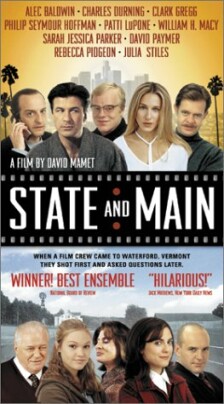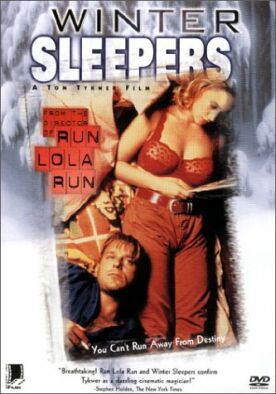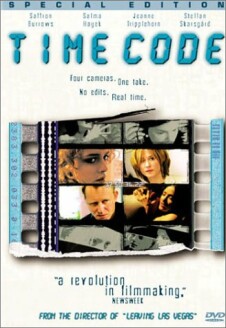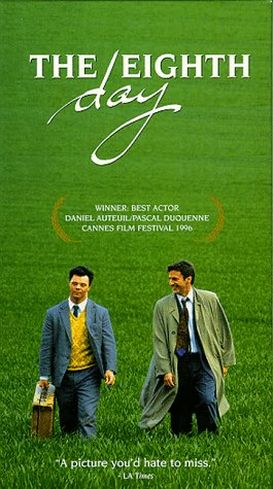State and Main
David Mamet’s State and Main
is so slow moving, so sluggishly edited, that
you’ve got to wonder if it is so
through incompetence — though this might
be OK for other kinds of films, it’s
disastrous in a comedy — or if there is
some subtle purpose to it: an attempt to assert, for example, that the quirky,
Mametian jokes are really the whole point of this send up of Hollywood
movie-making. The movies themselves are made to look ridiculous because they are
so uncongenial to Mr Mamet’s peculiar
talents. Where jokes in the movies ideally come with a
machine-gun’s patter, Mamet wields a
flintlock, which has to be carefully primed and loaded before each firing.
They also have a strange, surreal quality that is sometimes distracting and
sometimes annoying. Thus when the
film’s director, played by William H.
Macy, asks what is required to keep his piggish, prima donna of a star, Bob
Berringer (Alec Baldwin) happy and is told, ominously, that the answer is
“14-year-old
girls,” he pauses for only a moment
before replying: “Get him something
else. Get him half a 28-year-old
girl.”
It’s a form of intellectual humor that
seems to me particularly ill-suited to the movies, where half a 28-year-old girl
is not a visual possibility. The line might work as a throwaway, but in this
deliberate, plodding movie nothing is thrown away.
It would have been a much better picture if quite a lot of things had been
thrown away, starting with the main character, a young screenwriter called
Joseph Turner White (Philip Seymour Hoffman) whose sensitive, old-fashioned
coming-of-age drama and “quest for
purity” called The Old Mill, is
being made into a movie on location in New England. Mr Hoffman is a very
talented actor, but here he looks as if he is on drugs, lumbering through each
scene with a frozen grin on his face as if he
wasn’t quite sure where he was
supposed to be next. He is too obviously
Mamet’s alter ego, a Movieland Candide
continually bemused (though not bemused enough) by the absurdities of the
business he finds himself in, and his love-interest, local girl Annie, is
Mamet’s wife, Rebecca Pigeon.
In the clash between the brittle, corrupt, phony world of the movie people
and the solid, real-life virtues of small-town New England a movie like this has
its natural raison
d’etre, but Mamet,
creatively ambitious as ever, wants to try something different. Not for him the
cliché of solid, heartland virtues triumphing over metropolitan
sophisticates. Here the
locals — including a star-struck mayor
played by Charles Durning, a willing teenage victim of the egregious Berringer,
played by Julia Stiles, and a shyster lawyer played by Clark
Gregg — tend to be as morally
unattractive as their West coast visitors. Only the charming Annie, a local
intellectual who runs a bookstore and directs amateur theatricals, and her
grinning swain the screenwriter are left to carry the moral burden of the
piece.
“Ah, love, let us be true to one
another. . .,” as Matthew Arnold put
it on the darkling plain of “Dover
Beach.” But while the ignorant armies
continue to clash by night, we haven’t
much of a sense of the personalities of our bobo Adam and Eve. Just why is it
that these two alone have been rescued from the moral pile-up in which they are
unwillingly involved? Even where the farcical context seems to provide
opportunities for our heroes to charm us with ridiculousness, Mamet resolutely
refuses them. At one point, Annie catches Turner alone in his hotel room with a
naked woman, the
movie-inside-the-movie’s nymphomaniac
star, Claire (Sarah Jessica Parker). Of course he tells her that
it’s not what it seems. As of course
it is not. But the comedy of the situation crucially depends on
Annie’s natural assumption that it is
exactly what it seems. But Annie accepts the stammered explanation and goes away
without a twinge of jealousy. Just what was the point of that?
Even some of the jokes which, however slow-moving, are supposed to be
Mamet’s forte, are rather tired. For
example, the father of Julia Stiles’s
nymphet — and, by the way, Miss Stiles
is obviously far too intelligent an actress to be playing this brainless
groupie — is a reds-under-the-beds type:
an apparent right-wing nut who has driven his daughter to her sexual
“acting
out.” Once, when he is in mid-rant,
someone points out to him that Communism is over.
“That’s
what they said about Warner Bros, circa
1985,” he replies,
“and look at their share price
today.” It is yet another reminder of
the interpenetration of the entertainment culture and what still passes here and
there for “real
life.” This may be a true observation,
but it is hard to see what is entertaining about it.
Discover more from James Bowman
Subscribe to get the latest posts to your email.








